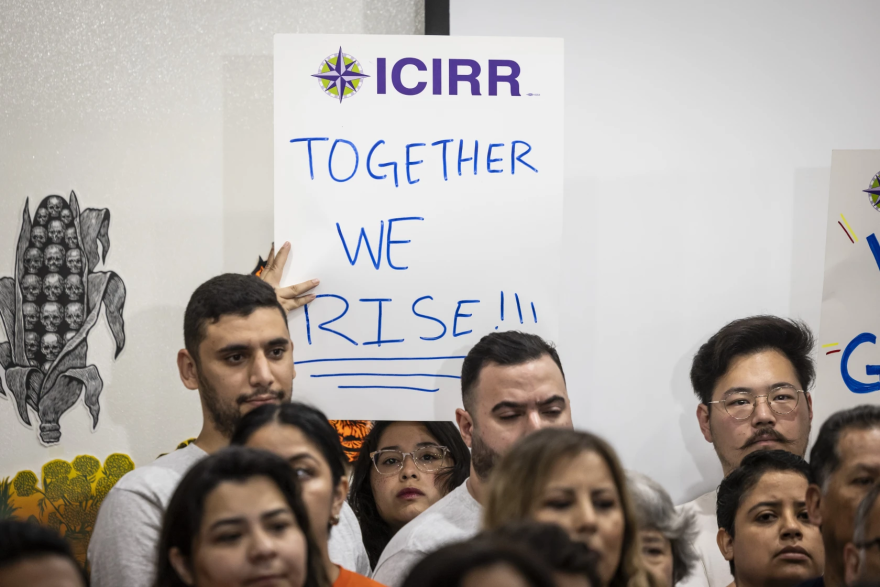Nonprofits fear a proposed law aimed at counterterrorism could unintentionally politicize the sector.
The Stop Terror-Financing and Tax Penalties on American Hostages Act recently passed the U.S. House., and Rep. Brad Schneider, a Democrat from northeast Illinois, is the lead sponsor.
The bill changes tax-filing requirements for hostages of terrorist organizations, extending deadlines for seven Israeli Americans held by the militant group Hamas, among others. Certain provisions also give the Treasury secretary broad power to strip nonprofits of their tax exemptions for providing “material support” to terrorist organizations.
“That’s already illegal,” said Holly Ambuehl of Normal, the director of policy and government affairs for Forefront, a statewide nonprofit advocacy group. “No one in the nonprofit sector has any interest in protecting support provided to terrorist organizations. We don’t want bad actors in our sector either. None of us benefit from that.”
Ambuehl said Forefront supports the spirit of the law, but there are looming concerns about granting the executive branch the power to define terrorism.
“We know that the incoming administration has referred to nonprofits as terrorist organizations. That’s documented,” she said. “There have been noises from Congress for the past few years talking about who does and does not deserve a tax-exempt status. We have a breadth of types of opinions and services — and even expressions of faith — that exist within the nonprofit sector, and that’s the way it should be.”

Ambuehl said immigration rights advocates, humanitarian aid agencies, abortion providers, Black Lives Matter groups and mosques are particularly vulnerable in the next administration.
“Folks are concerned about how granting a power that’s unilateral to the executive branch to decide what terrorism is and is not, domestically and internationally, could be a power that is abused,” Ambuehl said. “We want to make sure everyone stops to think about that.”
WGLT reached out to several area nonprofits to hear their concerns on House Bill 9495. None responded. The station also reached out to the two members of Congress who represent Bloomington-Normal.
In a statement, Rep. Eric Sorensen, D-Rockford, said concerns from constituents and nonprofit leaders convinced him to vote against the bill, which is unlikely to reach the Senate floor until a Republican majority takes over in January. Sorensen said the bill could unfairly target nonprofits and public charities, “making them vulnerable to politically motivated attacks and undermining their ability to serve our communities.”
Rep. Darin LaHood, R-Peoria, voted to support the bill. His office did not respond to requests for comment.
“Down the road, tables could turn, and we need to make sure we’re writing good public policy that can be implemented fairly across both sides of the aisle, regardless of who’s in the executive branch,” said Ambuehl. “That’s what we’re asking them to do.”
More broadly, she said nonprofit stakeholders deserve a seat at the table regarding laws affecting them. Schneider has given assurance that Forefront and other stakeholders will be able to weigh in on future versions of the bill that might reach the Senate floor.
“The nonprofit sector is 11% of the economy,” Ambuehl said. “We’re major employers. We’re contributors to our economy and we should be treated with that kind of respect.”


